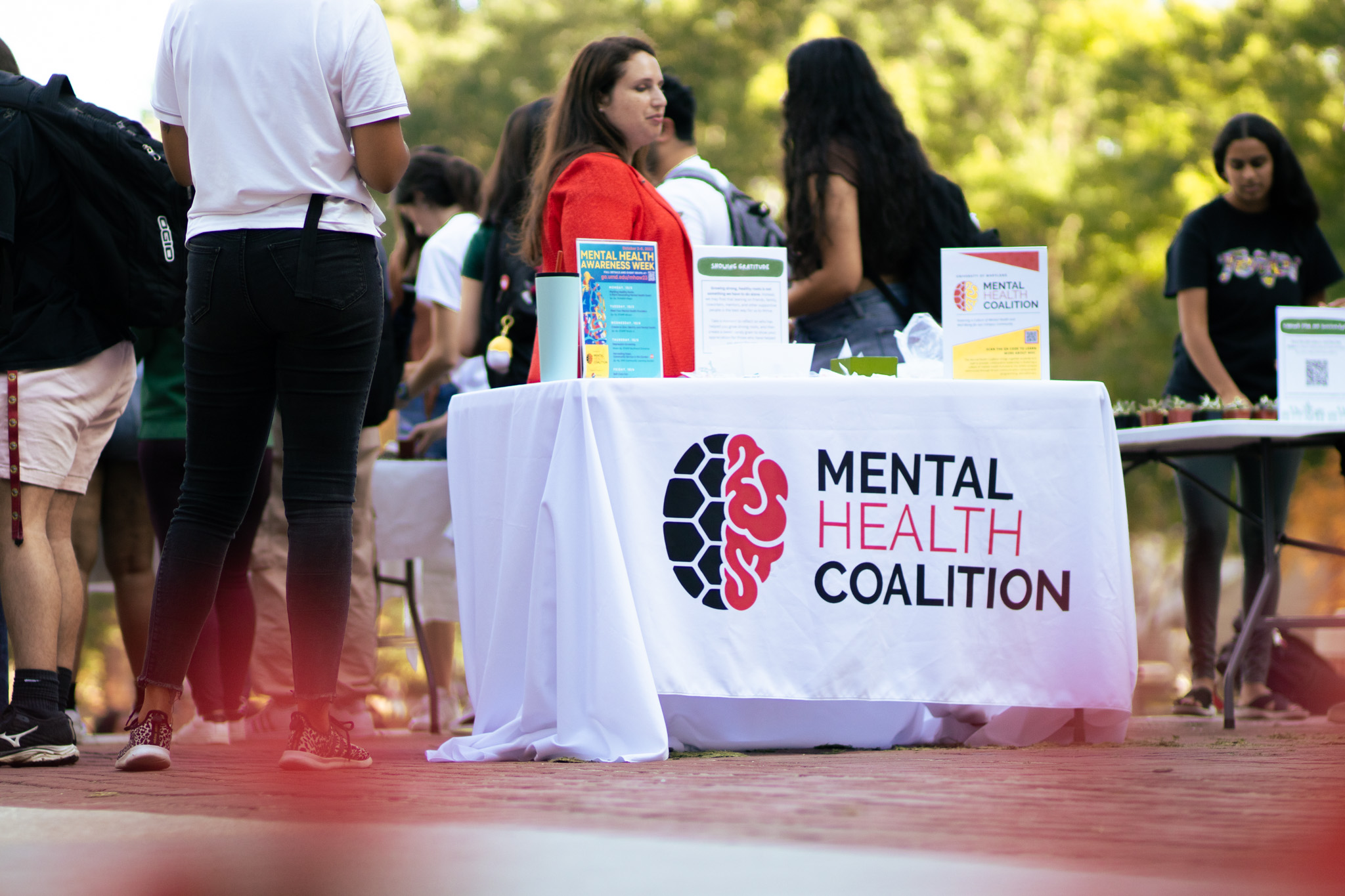When environmental health sciences doctoral student Jan-Michael Archer worked 40 to 60 hours a week as a research assistant, he felt like he couldn’t reach out for help.
“I didn’t really feel like there was anyone I could talk to about this because everyone else looked like they were just grinding through it as well,” Archer said.
To raise mental health awareness for graduate students, University of Maryland graduate students highlighted the importance of mental health advocacy and resources for the unique population through two events organized by the university’s Graduate Student Government during the campus-wide Mental Health Awareness Week.
From Oct. 2 to Oct. 6, the GSG collaborated with other organizations at the university, including the Mental Health Coalition and the university’s Student Government Association, to organize the events.
On Tuesday, the GSG partnered with the SGA for an event where graduate students could meet with the university’s mental health care providers and learn about the available mental health resources.
At Wednesday’s Create-a-Zine event — where students created zines about their identities — machine learning graduate student Thilak Mohan said he likes mental health-based events because the issue is not talked about enough.
[UMD Graduate school dean discusses collective bargaining, food insecurity at GSG meeting]
“I am a big, big advocate that mental health is something that people should intentionally work on and not just leave to the side,” Mohan said.
As Mental Health Awareness Week came to an end Friday, several graduate students at the university said mental health remains a pressing issue.
GSG president Autumn Perkey emphasized the importance of normalizing mental health discussions for the struggling community.
“It’s important that we normalize the conversation regarding mental health and the reality that we’re a community in crisis, and we have been for a long time,” said Perkey, a government and politics doctoral student.
In September, more than 100 international graduate students had their healthcare waivers invalidated after purchasing a healthcare plan from a private provider — leaving them scrambling for alternatives to avoid paying more than $2,300 for the university’s Student Health Insurance Plan.
Archer added that graduate school can be a very isolating experience.
“To kind of get into graduate school in the first place, you have to be kind of this high-achieving, high-performing, academic person,” Archer said. “In these spaces, it’s not really welcomed to say, like, ‘Oh, I don’t know this thing,’… and it can be really isolating as you’re trying to promote the best version of yourself as a graduate student and as a scholar.”
Archer, the former president of the Graduate Labor Union, the organization formerly known as Fearless Student Employees, testified to the Maryland General Assembly in February about graduate student collective bargaining rights and mental health.
In his February testimony, Archer said that he had “suicidal ideation” due to his working environment, but he was able to get support from the university’s counseling center.
[UMD revokes health insurance waivers for more than 100 international graduate students]
Some graduate students, including engineering masters student Tharun Puthanveettil, noted that international graduate students face additional challenges regarding mental health issues.
“For us, it’s not just about studies,” Puthanveettil said. “It’s about getting an internship or a job or our visa status is at stake … in general, if you’re a student staying away from your family, there’s a lot more that you have to deal with.”
Leslie Krafft, program manager in the Office of Diversity and Inclusion for the TerrapinSTRONG onboarding program, said one of the purposes of mental health awareness events is to reduce stigma and allow students to talk openly about mental health.
Krafft described the university’s mental health policies as “multi-pronged.”
“No initiative or effort that we’re making is going to solve mental health problems,” Krafft said. “We really need to continue to tackle this from all different angles to make sure that everybody’s getting what they need from something that we’re offering.”
According to Krafft, the university’s Mental Health Task Force is reviewing mental health transports — mental health calls that require hospital care.
The task force is trying to hire clinicians to respond with police officers to transport students during mental health emergencies, she added.
Moving forward, Mohan said mental health is something he has to pay more attention to.
“It can be a complete killer,” he said. “You can just feel like your best in one moment and feel like your absolute worst in the other.”



